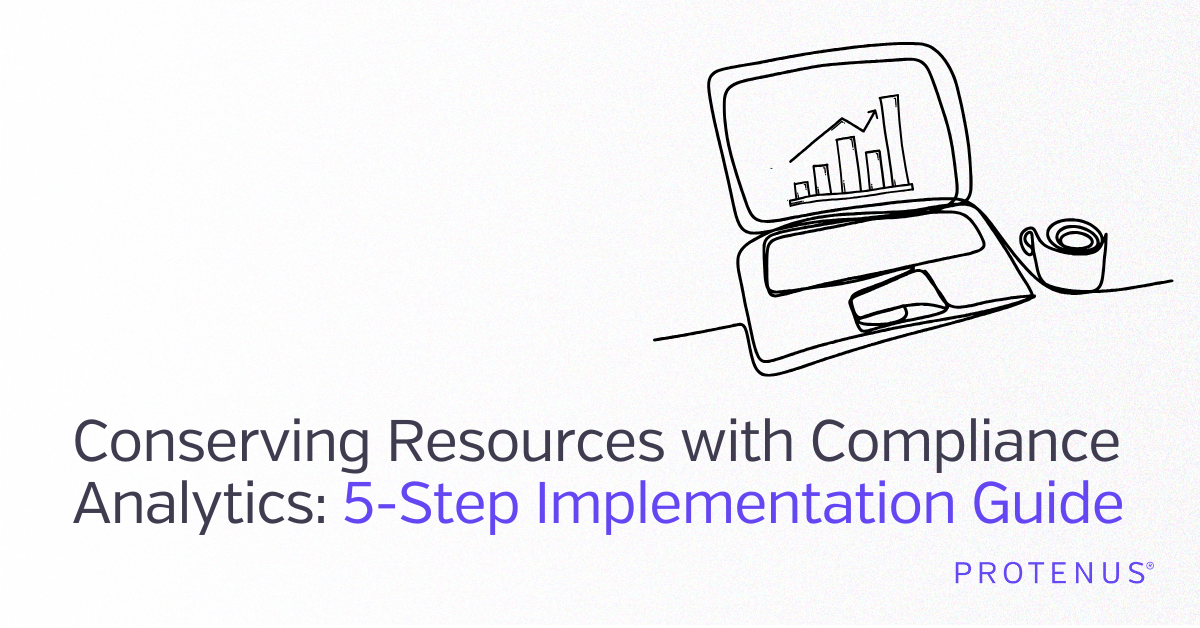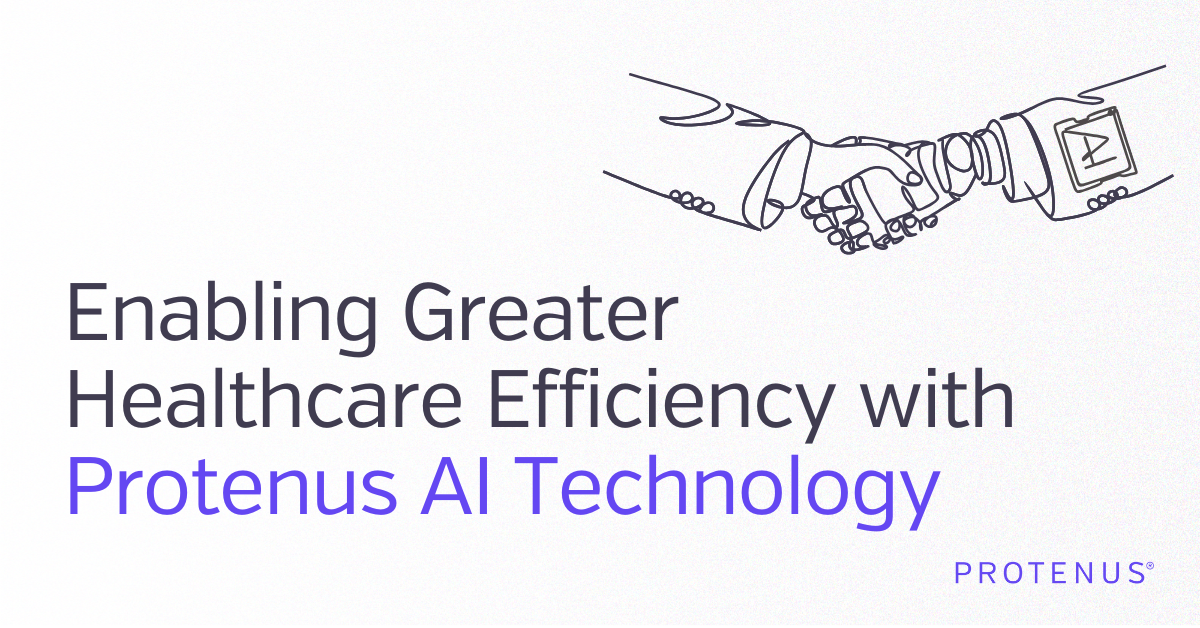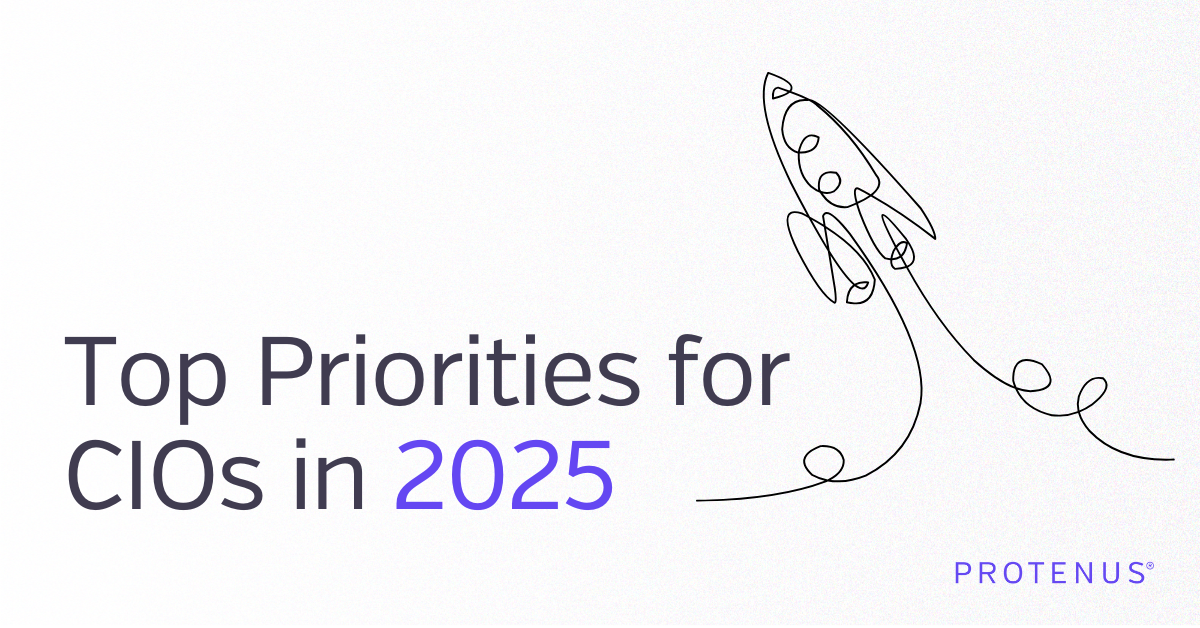Share this

Navigating the Landscape of Drug Diversion Monitoring: Top Trends and How to Choose the Right Partner
by Protenus on June 26, 2024
With an estimated 1 in every 100 healthcare workers diverting controlled substances, diversion surveillance tools are becoming increasingly critical for healthcare organizations. At the same time, health systems are constantly evaluating how to be efficient with capital and resources in a strained economic environment. The ability to monitor and investigate the use of controlled substances is a must to ensure compliance with regulations and safeguard patient safety. Doing so in the most cost- and resource-effective manner is critical.
Technology is an obvious option to build cost effective compliance solutions, but oftentimes software programs can increase the burden on the healthcare workforce. As organizations look to adopt technology or perhaps replace a legacy solution, significant trends and challenges are emerging, reshaping how these solutions are adopted and implemented. Below, we’ve outlined the top trends to look out for when selecting the right partner or technology.
Is Software Doing the Heavy Lifting?
Ideal software makes our lives easier. When considering a new technology, look for opportunities to divert work away from front-line clinical workers and analysts, not the other way around.
One common trend with diversion surveillance programs is the democratization of case review to nursing staff to reduce false positives. Nurse managers and staff play a critical role in diversion investigations and remediations, but if those individuals are asked to analyze and process raw data or to screen out false positives, then it's a missed opportunity for technology to make the work easier on front-line staff.
Protenus Solution: We understand that healthcare workers are overwhelmed with responsibilities, with some tasks redirecting them away from patient care. The Protenus interface is designed to conduct an efficient and effective diversion investigation. When new data is ingested, our AI technology is used to automatically update and resolve activity that was previously thought to be a concern, saving your diversion program and clinical leaders time and resources. To curb alert fatigue and false positives, the Protenus Drug Diversion Surveillance solution identifies the most suspicious users, creating fewer “false flags”and alerts to the end-user. Our patented AI learns over time what is a good catch or a false positive using end-user input on updated and resolved incidents. This approach not only prevents alert fatigue or wasted time on the wrong incidents, but enables the user to focus on what matters most: their patients.
Who is responsible for data quality assurance testing?
No one knows your data better than you do, but are you being asked to QA your vendors products with your data? Are you being charged for a product while you complete QA?
In many cases, vendors offload the quality assurance (QA) process of the system integration onto the hospital's IT, compliance, or pharmacy teams during implementation of a drug diversion monitoring solution, or charge extra for these services (often after the contract has been signed). This practice can be an unexpected financial strain on healthcare organizations already operating on thin margins. This lack of collaboration can lead to significant challenges for the organization long-term, including increased workload and potential compliance risks, as well as inadequate or inefficient use of the technology solution.
Protenus Difference: At Protenus, we take the time, resources, and diligence required to perform the majority of QA tasks for our customers. Our goal is to provide a seamless, cost-effective implementation process that doesn’t compromise on quality or compliance. We believe in a collaborative approach to our system implementation and QA. Our team works closely with key stakeholders through the entire onboarding process to ensure that all aspects of the implementation are thoroughly vetted and functioning correctly. By doing so, we reduce the burden on your team and ensure a smoother transition to full operational use.
Are all the right data feeds being included in your analytics?
Effective AI-driven technology, including drug diversion monitoring solutions, must rely on accurate and comprehensive data feeds from electronic health records (EHR), HR management platforms, automated dispensing cabinets (ADC), and other pharmaceutical and operational systems for comprehensive surveillance of controlled substance use. Issues like duplicate employee (or patient) records, name changes, or multiple accounts for an employee due to job changes (or concurrent roles), can severely impact the performance and reliability of diversion surveillance technology. Inappropriately linked data may lead to wrongfully accusing an employee of drug diversion, or even worse, completely overlooking a legitimate concern for diversion.
Data Integrity: Protenus prioritizes data integrity by ensuring smart integration and data mapping that prevents data inconsistencies and manual maintenance. For example, by capturing HR records, Protenus is able to accurately link employee and patient data files to the appropriate user, ensuring that our customers have the most accurate and reliable information. Furthermore, Protenus automatically accounts for any medication formulary changes or when new NDCs are purchased, meaning, there is no end-user maintenance required to ‘map’ medications within the software. This attention to detail ensures that our system remains accurate and reliable, providing the best possible outcomes for our clients.
Did you compare all vendors in a selection process?
Vendors often employ contract rollover tactics or ‘grandfather’ older agreements into new terms without renegotiation. This practice can lock healthcare organizations into outdated, less effective solutions - without notice, or with minimal time to consider alternatives. The diversion monitoring software landscape is constantly changing, with new features and capabilities changing vendor dynamics.
Transparent Contracts: Organizations should routinely review their vendor contracts, keeping awareness to term conditions and dates. At Protenus, we believe in transparency and flexibility. Our contracts are designed to be clear and straightforward, and we are open to renegotiation to ensure our clients receive the best possible service and value.
Are all stakeholders involved in the selection process?
Many health systems have established diversion monitoring committees that include participation from all relevant parties: Pharmacy, Nursing, IT, Compliance/Risk, and Human Resources. When solutions are selected without consulting all stakeholders, it can lead to inefficient workflows that burden certain teams, while leaving others in the dark. Similar to the aforementioned trend of nursing leaders being asked to review raw data in order to reduce false positives, the compliance team is often missed in purchasing processes. As a result, board compliance and audit committees often find the need to change programs after the fact in order to best support their peers who are leading diversion investigations. All stakeholders bring their own experience and value in delicate diversion investigations, and ensuring all perspectives are covered is imperative to building a successful monitoring program.
Culture of Awareness: Protenus recognizes the importance of collaboration when building successful drug diversion programs. By including all stakeholders, from leadership to compliance to clinical staff, a culture of awareness and accountability can be fostered. This collaborative approach ensures effective program implementation, efficient investigations, and open communication. Protenus' commitment extends beyond the technology itself, aiming to empower all healthcare personnel to play a vital role in safeguarding patient safety and maintaining institutional integrity.
Is your data protected?
Another troubling trend in the landscape of diversion surveillance is vendors using health system data for purposes outside of diversion surveillance. For example, a vendor may pitch additional products using the health system’s own data, without permission. Far worse is when vendors sell customer data to third parties without explicit authorization. While agreements should prevent this, data can be aggregated and sold without the health system’s knowledge.
Explicit Protections: At Protenus, we explicitly call out data privacy and security obligations in our contracts and assure our customers that their data will not be used outside of the scope of agreed upon work. Protenus prioritizes customer data protection through a combination of security measures and transparency. We adhere to industry standards and regulations to ensure data handling meets specific compliance requirements, with a privacy policy that clearly outlines how customer data is used and protected, allowing customers to understand and control their information. By implementing these practices, we strive to build trust and safeguard sensitive customer data.
Conclusion
The adoption of drug diversion monitoring solutions in the healthcare industry is marked by several significant trends, each presenting its own set of challenges and opportunities. At Protenus, we are committed to addressing these trends with innovative, customer-focused solutions that help enhance efficiency, maintain compliance, and ultimately, improve patient care.
Our hands-on approach to implementation, commitment to collaboration, and dedication to delivering on promises make us a trusted partner in healthcare compliance and in the battle against drug diversion. As the healthcare landscape continues to evolve, we remain at the forefront, leveraging advanced technologies and industry insights to provide unparalleled service and support.
If you're ready to experience the Protenus difference, we invite you to connect with us and learn more about how our solutions can benefit your organization. Let's work together to create a safer, more efficient healthcare environment.
The information shared in this post is intended for informational purposes only. Your own due diligence and technology needs should ultimately drive your final decision.
Share this
- December 1, 2024 (3)
- November 1, 2024 (1)
- October 1, 2024 (2)
- September 1, 2024 (1)
- August 1, 2024 (1)
- July 1, 2024 (1)
- June 1, 2024 (1)
- May 1, 2024 (1)
- March 1, 2024 (2)
- February 1, 2024 (3)
- January 1, 2024 (1)
- December 1, 2023 (1)
- November 1, 2023 (3)
- October 1, 2023 (3)
- September 1, 2023 (1)
- August 1, 2023 (1)
- July 1, 2023 (2)
- April 1, 2023 (1)
- March 1, 2023 (1)
- February 1, 2023 (1)
- December 1, 2022 (3)
- November 1, 2022 (3)
- October 1, 2022 (1)
- September 1, 2022 (1)
- August 1, 2022 (2)
- June 1, 2022 (4)
- May 1, 2022 (5)
- April 1, 2022 (1)
- March 1, 2022 (4)
- February 1, 2022 (3)
- November 1, 2021 (2)
- October 1, 2021 (3)
- September 1, 2021 (3)
- August 1, 2021 (3)
- July 1, 2021 (4)
- June 1, 2021 (2)
- May 1, 2021 (2)
- April 1, 2021 (2)
- March 1, 2021 (5)
- February 1, 2021 (1)
- January 1, 2021 (1)
- December 1, 2020 (1)
- November 1, 2020 (2)
- October 1, 2020 (2)
- September 1, 2020 (3)
- August 1, 2020 (2)
- July 1, 2020 (2)
- June 1, 2020 (6)
- May 1, 2020 (3)
- April 1, 2020 (4)
- March 1, 2020 (2)
- February 1, 2020 (4)
- January 1, 2020 (2)
- December 1, 2019 (2)
- November 1, 2019 (1)
- October 1, 2019 (1)
- September 1, 2019 (1)
- August 1, 2019 (1)
- June 1, 2019 (1)
- April 1, 2019 (1)
- February 1, 2019 (1)
- January 1, 2019 (1)
- December 1, 2018 (2)
- November 1, 2018 (2)
- October 1, 2018 (2)
- September 1, 2018 (3)
- August 1, 2018 (1)
- July 1, 2018 (2)
- June 1, 2018 (2)
- May 1, 2018 (1)
- April 1, 2018 (1)
- March 1, 2018 (2)
- February 1, 2018 (6)
- January 1, 2018 (2)
- September 1, 2017 (2)
- August 1, 2017 (2)
- June 1, 2017 (2)
- May 1, 2017 (1)
- April 1, 2017 (1)
- March 1, 2017 (2)
- February 1, 2017 (5)
- January 1, 2017 (2)
- December 1, 2016 (3)
- November 1, 2016 (5)
- October 1, 2016 (4)
- September 1, 2016 (8)
- August 1, 2016 (4)
- July 1, 2016 (4)
Subscribe by email
You May Also Like

Conserving Resources with Compliance Analytics: A 5-Step Implementation Guide

Enabling Greater Healthcare Efficiency with Protenus AI Technology

.png?width=1000&height=140&name=Bluesight%20%2B%20Protenus%20Logo%20%20(1).png)
